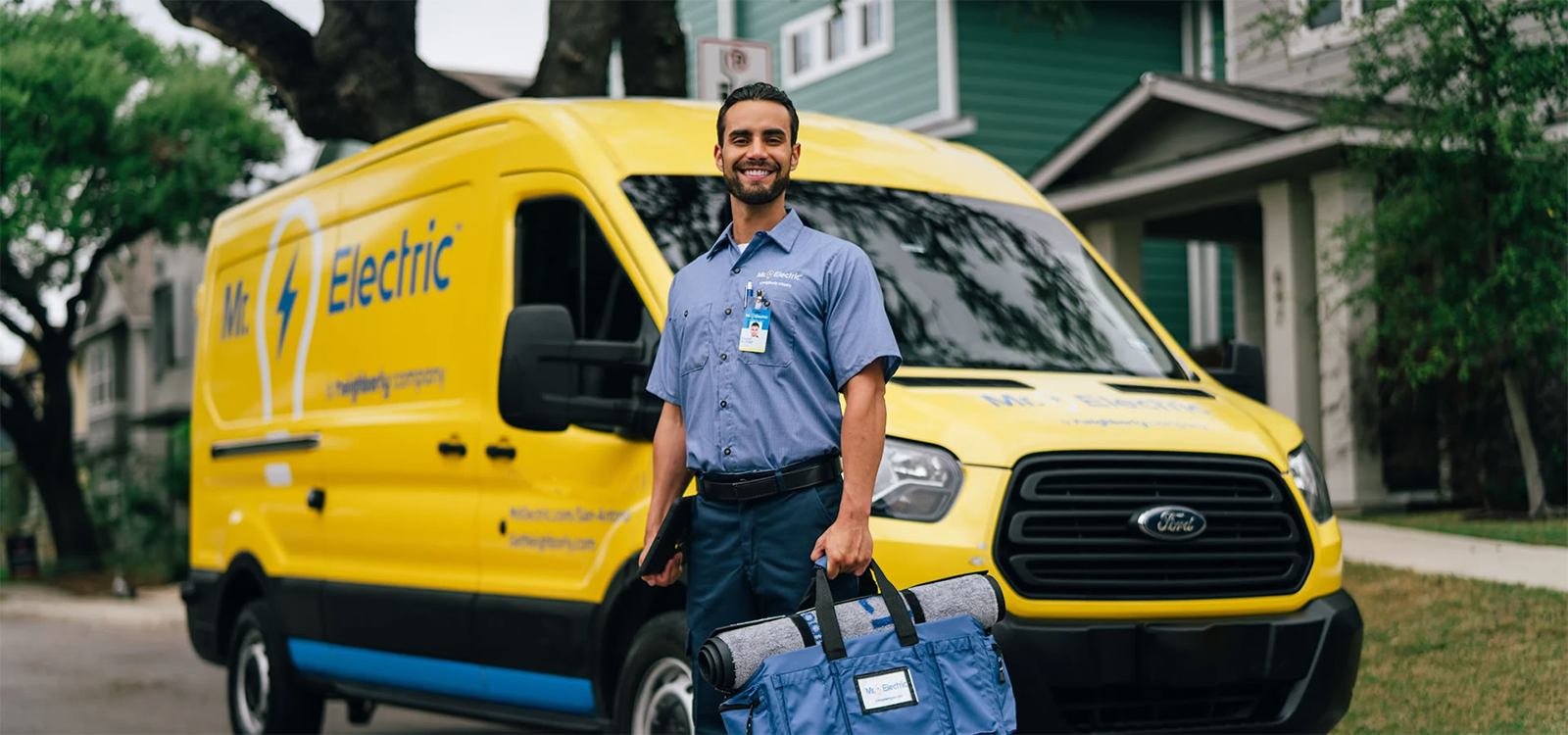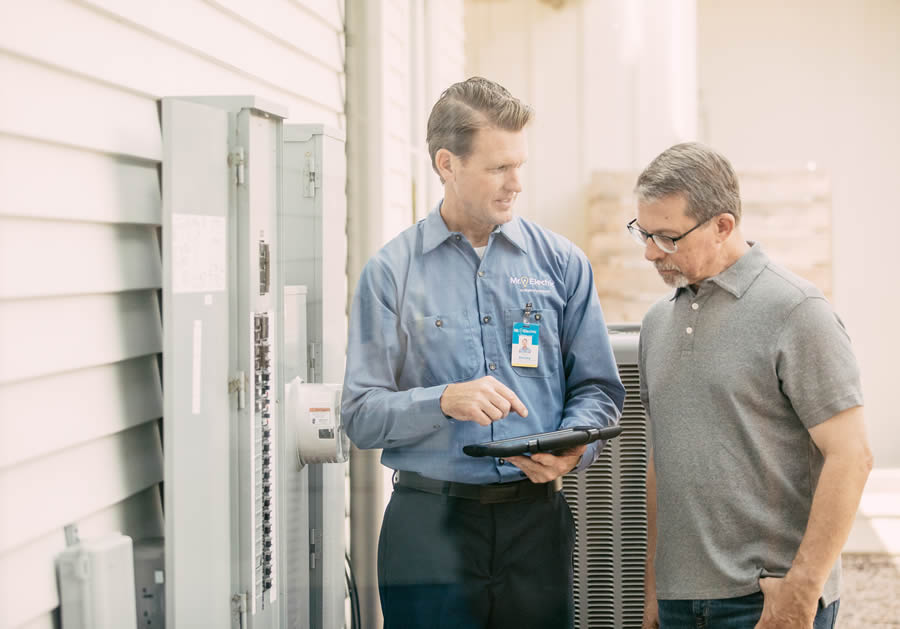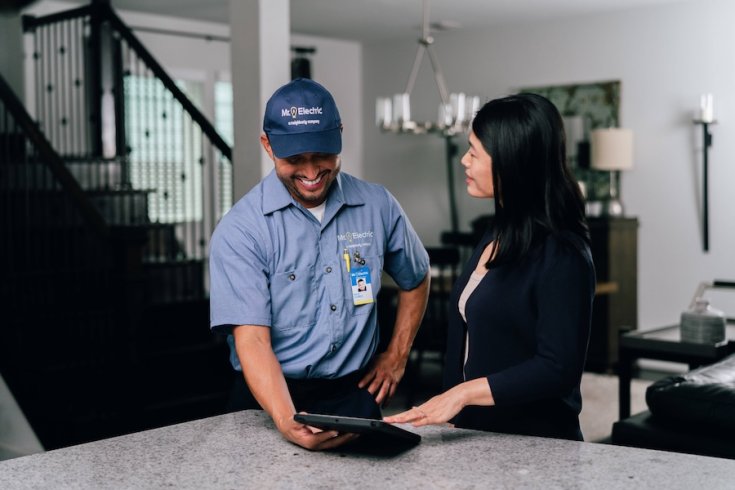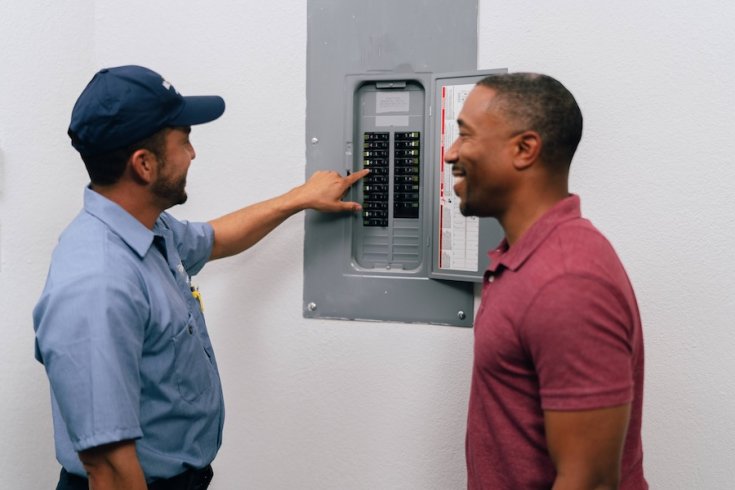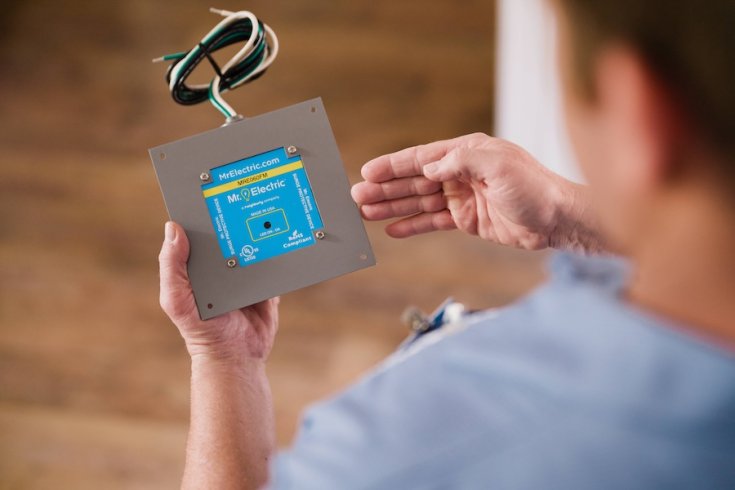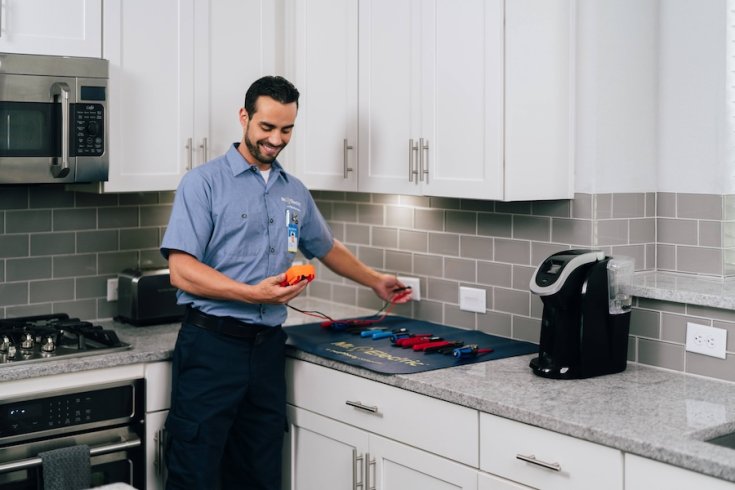Troubleshooting Circuit Breaker Tripping
The electrical panel, commonly known as the gatekeeper of any electrical system, manages the distribution of power throughout a home or business. Tripped circuit breakers, while often seen as an inconvenience, are actually crucial safety features designed to protect against electrical hazards. Understanding the causes of tripped circuit breakers is the first step in safely restoring power to your property.
In this brief article brought to you by Mr. Electric, we share some insights into tripping circuit breakers. If you’d rather consult with a certified electrician or schedule professional electrical repair service, then call Mr. Electric to speak with a member of our team today.
About Circuit Breakers
Before diving into troubleshooting, let’s understand the role of circuit breakers in electrical systems. Circuit breakers are protective devices designed to interrupt the flow of electricity when a circuit experiences an overload, short circuit, or ground fault. This interruption prevents excessive current from damaging wires, appliances, or causing electrical fires.
Common Causes of Tripped Circuit Breakers
It’s also important to understand the reasons for tripping circuit breakers. One of the most common is overloading. This happens when the electrical load on a circuit exceeds its rated capacity. Overloading can happen when too many devices or appliances are plugged into the same circuit.
Another typical cause is a short circuit. A short circuit occurs when a hot wire comes into direct contact with a neutral or ground wire, creating a low-resistance path for current flow. This sudden surge in current triggers the circuit breaker to trip in order to prevent damage to the wiring and devices.
Similar to short circuits, ground faults occur when a hot wire comes into contact with a grounded surface or conductor. This can happen due to damaged insulation or faulty equipment. Ground faults can lead to dangerous electrical shocks and should be addressed promptly.
Finally, older or malfunctioning appliances can draw excessive current or cause electrical faults, leading to circuit breaker tripping. Poorly connected wires or terminals in the electrical panel can cause intermittent electrical faults, also resulting in circuit breaker trips.
Troubleshooting a Tripped Circuit Breaker
To troubleshoot a tripped circuit breaker, you’ll have to first identify the affected circuit. Locate the circuit breaker that has tripped. It will be in the "off" position.
Now that you know which circuit is affected, head to that location and unplug devices or appliances. Also inspect electrical outlets, switches, and wiring for signs of damage, exposed wires, or burning smells. Use a multimeter to test for continuity and shorts in the circuit.
After unplugging the devices and ensuring there is no physical damage in the electrical system, reset the tripped circuit breaker by pushing it fully into the “off” position then switching it back to the "on" position. If it trips again immediately, there may be an underlying issue that requires further investigation.
Once you’ve reset the circuit breaker, plug appliances back in one at a time and monitor the circuit for any signs of overloading or tripping. Replace or repair faulty appliances as needed.
When to Seek an Electrician
If troubleshooting steps do not resolve the issue or if you are unsure about electrical work, then consult a certified electrician for an electrical panel repair or inspection. The uniformed electricians at Mr. Electric offer everything from quick inspections to a complete circuit breaker replacement. Call us today to speak with a member of our team.


